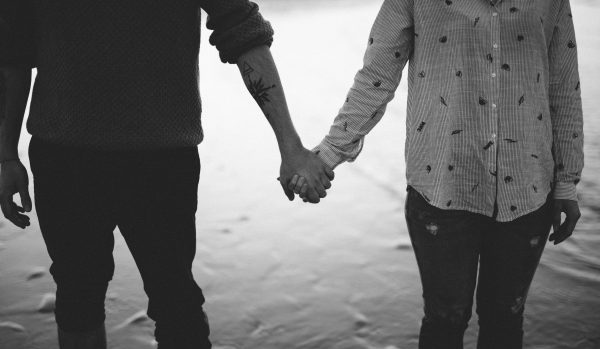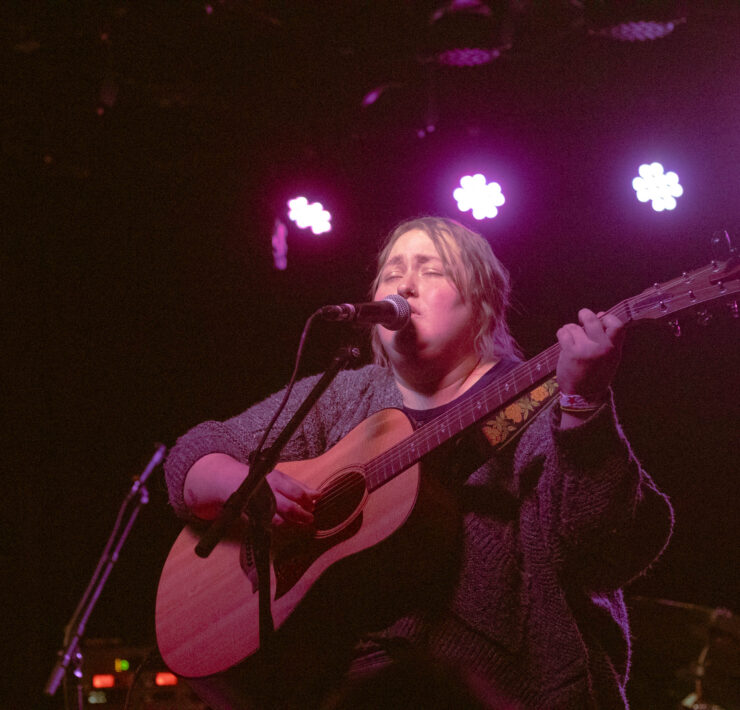Understanding Asexuals and Sex

Addison Herron-Wheeler is OUT FRONT's co-publisher and editor-in-chief and friend…
They are the A in LGBTQIA, but they often get overlooked, especially when the conversation is about sex. They also often get shut out of the community, or treated like they aren’t a sexuality. But asexuals are diverse, welcome in our circles, and represent a very important part of the conversation when it comes to sex.
Sexuality is already an incredibly complicated topic. Many struggle for years trying to figure out if they are gay, straight, lesbian, bi, or somewhere in between, and those who are not cisgender also have to deal with the intersection of their sexuality and gender identification. For those who are asexual, it can be even more complicated, as others often don’t believe or accept an individual’s claims about how he, she, or they identifies.
“One of the biggest issues for coming out with asexuals is that you just aren’t believed,” explained Elliot, local leader of Colorado Ace Space, a meetup organization dedicated to providing resources for those who identify as asexual or gray-ace (somewhat asexual or less sexual). Colorado Ace Space is a branch of a larger, national Ace Space network that caters to asexuals in many different cities. The purpose of these groups is to be a hub for all things ace, since the people in this community often lack resources.
“People say ‘you haven’t met the right person yet; you’ll grow into it,’ or other, similar things,” she continued. “When some of my gay friends came out, their biggest concerns were whether their parents were going to kick them out, but in the case of being asexual, it’s actually ‘how do I convince them that this is a sexuality and it’s mine?’”
Those who identify as asexual also often have a hard time being understood. One common misconception is that asexual people do not have sex. There are different levels of being asexual, and some have sex, some do not. Those who are sex-repulsed will probably never have sex with a partner, but many asexual individuals have sex as a regular part of their relationships. It is also a misconception that asexual people do not have sex drives. They do; rather, they experience a lack of attraction.
“People have described it as having the urge without an aim,” Elliot explained. “It’s like you feel that sexual urge but then when you actually envision touching that person or having sex with that person and start going through a rolodex of different people it’s kind of like ‘um no, that doesn’t appeal to me,’ but you still feel kind of biological sexual urges. A lot of asexuals will use the analogy of being a straight guy with all your buddies. If you’re super horny, would you want to sleep with the guys you’re with? Probably not, if you’re straight and only like women. An asexual person is the same way. They feel the urge, but they don’t have a focus on either gender.”
Some asexual individuals feel that urge more than others, or have more of a focus for their sexual desires. While certain individuals are completely sex-repulsed, meaning they don’t find the idea of sex appealing at all, others simply experience less sexual attraction than most, and reside in more of a gray area. When courting a human who identifies in some way as asexual, it is important to understand how that person feels about sex and what is and isn’t in the cards when it comes to that relationship. This doesn’t automatically mean that sex is not in the picture, but it can in some situations.
“I think when you have a sexuality that may not align with whomever you’re with, you have to be really open about it,” said Elliot. “But if you feel it is going in a serious direction or you’d like it to go in a serious direction, I think there needs to be discussion about what the person needs, what you’re comfortable with, what they’re comfortable with, because a lot of people find that sex is a huge part of the relationship, and for some people not so much, even if they are non-asexual.”
She explained that the experience will be different for each person, not something that can be generalized by how someone identifies, like with all queer people.
“There are some asexuals who are sex-favorable or sex-neutral, but there are some who are sex-repulsed, so they need to be upfront about that,” Elliot added. “If they are sex-repulsed it is very, very unlikely that they are going to stop being sex-repulsed, so if that is going to be an issue it needs to be discussed. There are a wide range of identifications, so don’t assume someone hates sex, but also don’t assume you can convince them to like it.”
The best way to become more educated on the topic of asexuality is to speak to people in the community who identify this way if you know them, or learn more about the subject by visiting forums, going to meetups, or reading online information. If you or someone you care for identifies as asexual, there are resources for community and understanding the identity better. Visit Facebook.com/ColoradoAceSpace to learn about community meetups, make some new friends, and seek advice or networking. Ace Space organizations are also available in many other cities to those looking for community.
What's Your Reaction?
Addison Herron-Wheeler is OUT FRONT's co-publisher and editor-in-chief and friend to dogs everywhere. She enjoys long walks in the darkness away from any sources of sunlight, rainy days, and painfully dry comedy. She also covers cannabis and heavy metal, and is author of Wicked Woman: Women in Metal from the 1960s to Now and Respirator, a short story collection.










